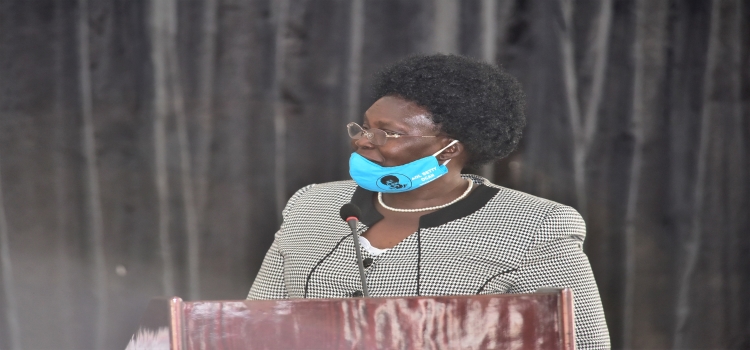
The Leader of the Opposition in Parliament, Ms Betty Aol Ocan, has called on government to desist from borrowing domestically, which she said will force financial institutions to adequately consider the financial needs of private citizens.
Domestic borrowing, said Ocan, makes financial institutions indifferent to private capital needs, exhibited by the difficulty in accessing loans and the arbitrary interest rates that by very large defy the central bank standard.
“There is a projected reduction in domestic borrowing by 10 per cent; however, this reduction is not very substantial lo give the public and the private sector confidence thot they won’t be crowded out and so will be in position to get cheap capitol to revamp their businesses,” she said.
She added: “This is seen from the static interest rates by commercial banks which is between 9 to 22 per cent, making it expensive for private investors to access credit.”
Currently, the central bank lending rate is seven per cent, which is always ignored by financial institutions.
Ms Ocan was presenting her official response to the National Budget Framework Paper for Financial Year 2021/22.
Unemployment in Uganda, she said, is skyrocketing and has been worsened by the Covid-19 pandemic, which has weakened the economy to a paltry annual growth of 2.6 per cent.
The continuing aspects of the lockdown, such as the night time curfew, has brought economic activities to a halt and increased skepticism to spend, hence further downing purchasing power and basing the economy.
Ms Ocan said government should urgently incentivise the tourism and manufacturing sectors to create jobs that will absorb the destitute across the country.
“There is need to boost more investments in productive sectors of agriculture and tourism so as lo create more job opportunities as compared to complementary sectors particularly works and transport that have taken centre stage in recent years,” she said.
With the 10th Parliament nearing its end, the most difficult timelines to obey are those imposed by the Public Finance Management Act in relation to the enactment of the Appropriation Act [the budget] and attendant revenue laws.
Deputy Speaker Jacob Oulanyah, who chaired the session, said there is need to accelerate the budget process, especially given that the new Parliament takes effect on May 20, 2021.
MP Abdu Katuntu (FDC, Bugweri) said because of the need to beat deadlines, the budget process is rushed and due scrutiny is not employed in dealing with appropriation.
“The budget process is the most important activity undertaken by Parliament each year as it touches on the sharing of national resources,” he said.
“When the Ministerial Policy Statements finally comes, it is sometimes copy and paste of what happened the previous year; let us have a paradigm in taking this process seriously,” he added.
The government, through finance state minister, David Bahati and Government Chief Whip, Ruth Nankabirwa, undertook to expedite the necessary processes.




























